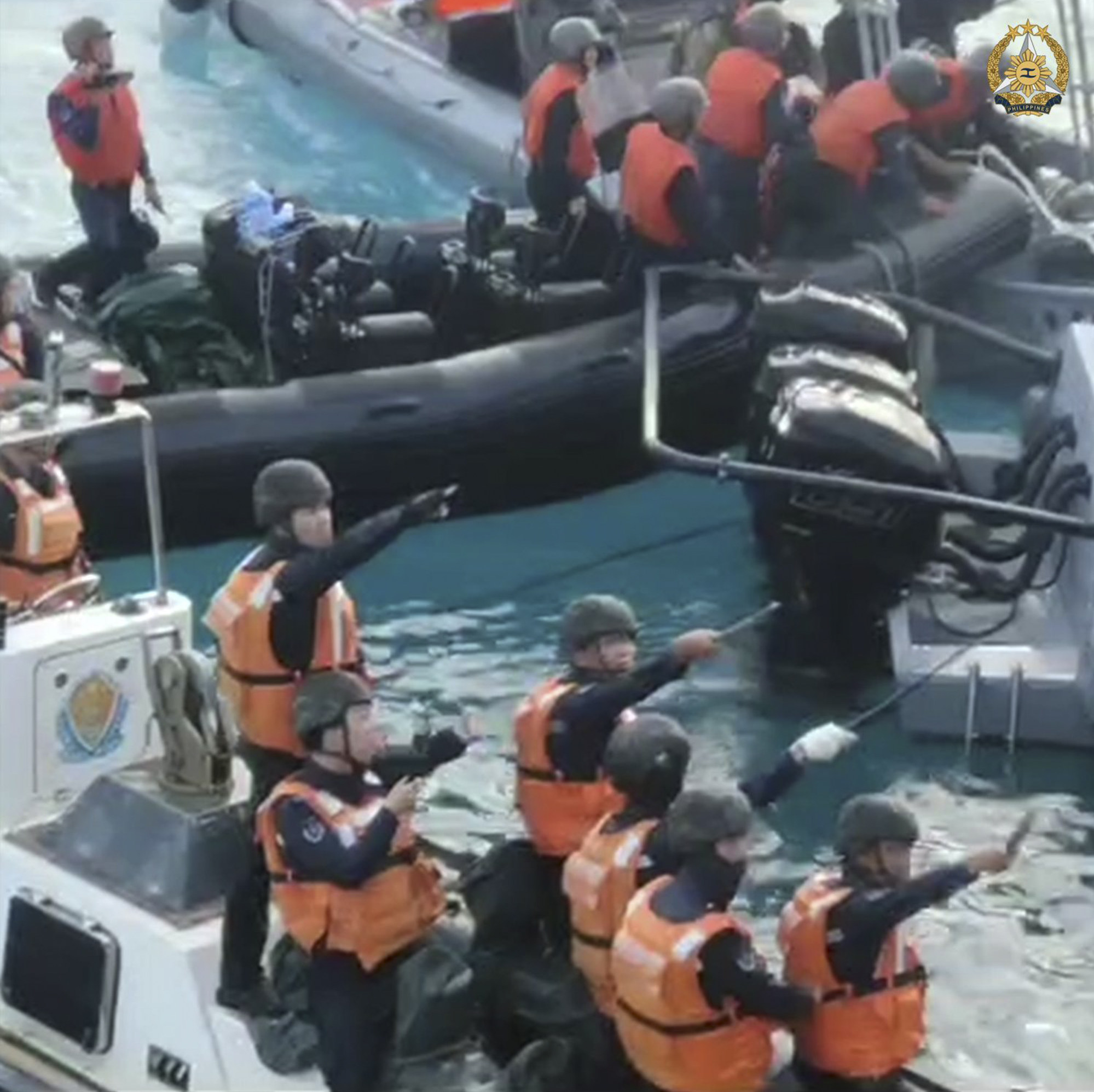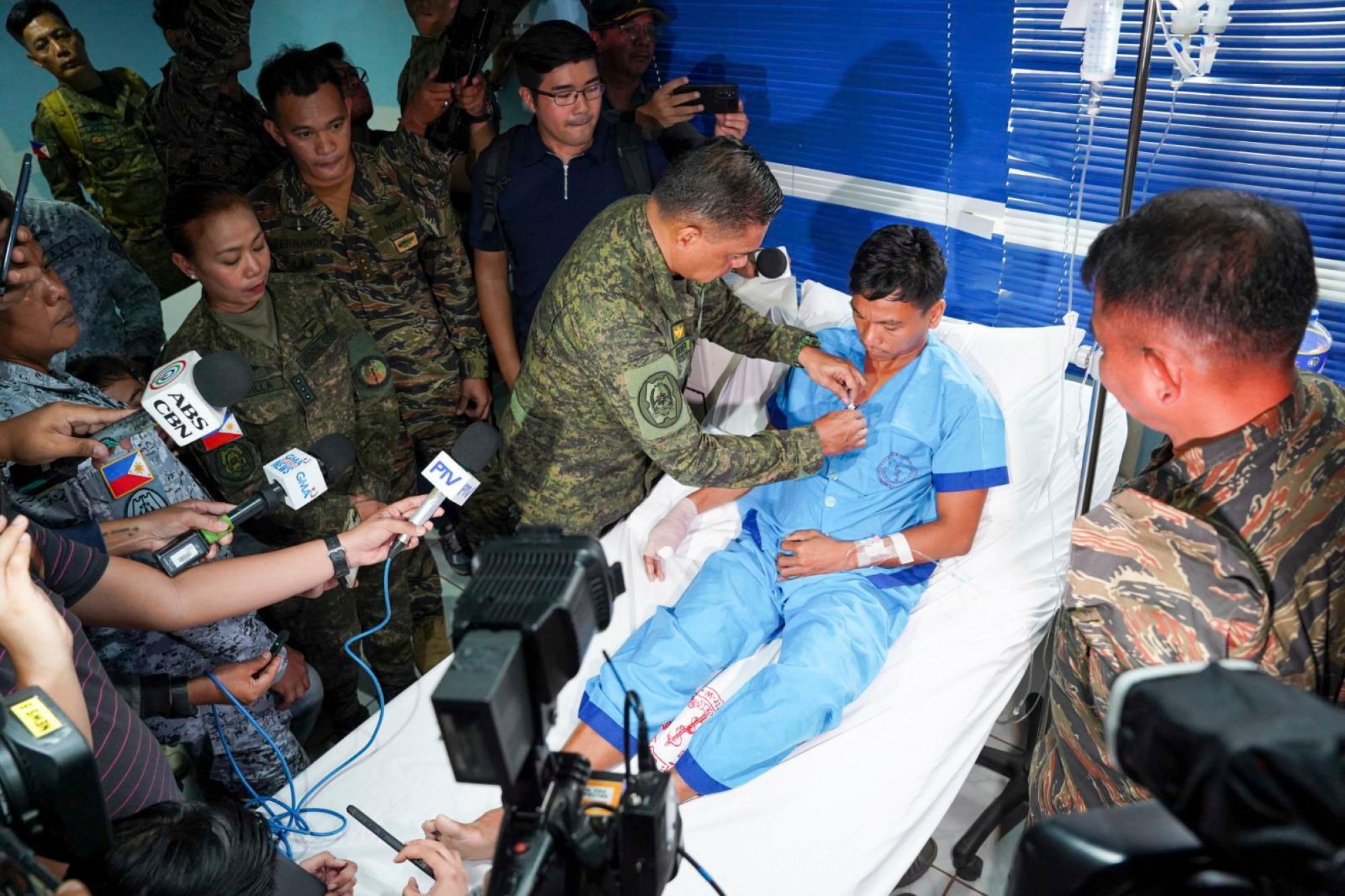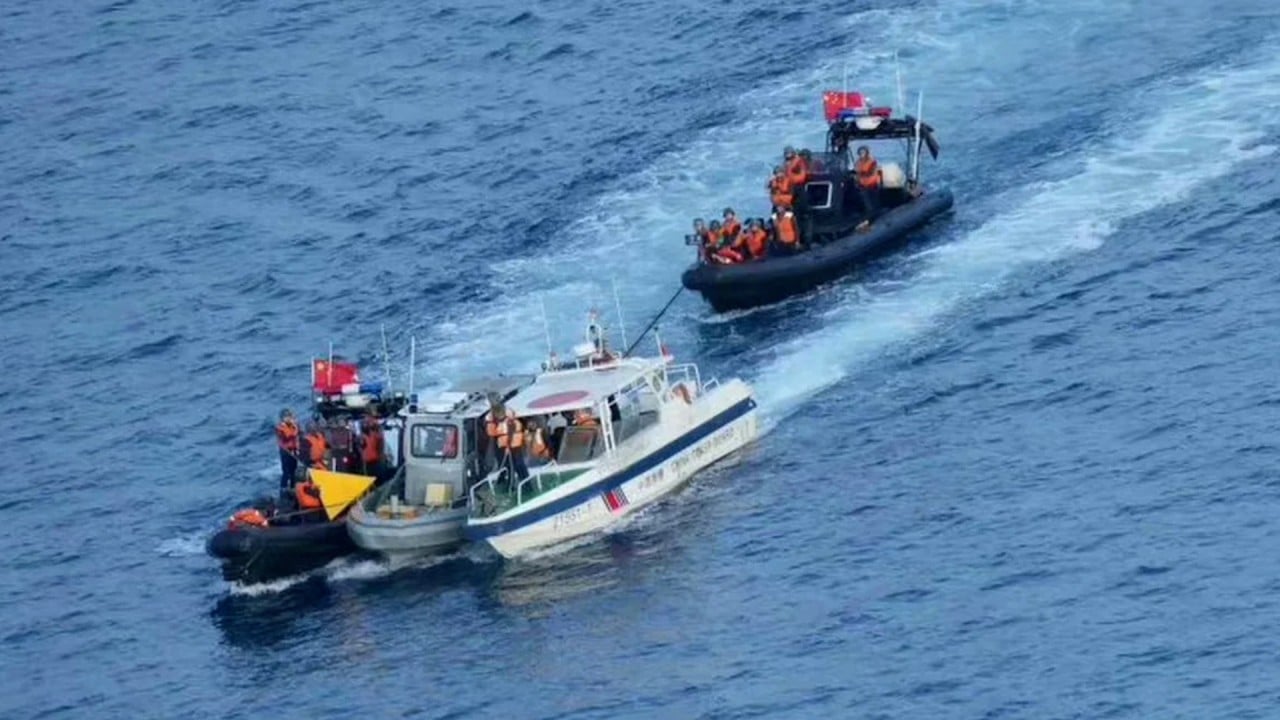Manila and Beijing have been locked in a months-long territorial row in the South China Sea. China’s coastguard also reportedly seized two lifeboats from the Philippine vessel.

At the Western Mindanao Command on the island of Palawan, Marcos in a surprise visit on Sunday told troops to continue fulfilling their duty with integrity and respect, noting: “We refuse to play by the rules that force us to choose sides in a great power competition.
“And that is why, in defending the nation, we stay true to our Filipino nature that we would like to settle all these issues peacefully,” he said. “But at the same time, we stand firm. Our calm and peaceful disposition should not be mistaken for acquiescence.”
Bersamin said they had not considered elevating the matter to a higher international body, adding the council did not classify the incident as an armed attack and had proposed policy recommendations to the president.
Manila at a crossroads
“I see the time it took the president to respond as an attempt to tone down the narrative and avoid talking about responses and ‘red lines’ that would benefit no one at this juncture, while reinstating his stance,” Piasentini said.
The Philippine government can anticipate incidents of similar severity, according to Piasentini, as China is expected to persist with its “grey-zone tactics”.
The timeline for Marcos’ response underscored the complexity of the issue, said political analyst Edmund Tayao, president and CEO of the Political Economic Elemental Researchers and Strategists think tank.
“Any president … should take careful note that as much possible, peaceful means should be exhausted … War should always be avoided,” Tayao told This Week in Asia, echoing the sentiment that Beijing would continue with its tactics as “they’re always able to get away with it”.

The Philippines, China, Malaysia, Brunei and Vietnam have competing claims in the South China Sea.
The latest clash signalled China’s strategy to fortify its presence in the disputed waters, but Marcos’ response did not indicate a defeatist stance, according to security analyst Chester Cabalza, president of the Manila-based International Development and Security Cooperation think tank.
“The play of words on the recent naval confrontation as a form of a misunderstanding is the tune of diplomatic acquiescence that needs to be said in public to pacify fears,” he said.
“I firmly believe that the government’s message has a profound meaning of accountability. They will find a way to resolve it through bilateral talks with China. Diplomacy is the first line of defence.”


